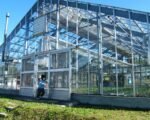Recent studies have raised concerns about the impact of prenatal cannabis use disorder (CUD) on the neurodevelopment of children. Research presented at the European Psychiatric Association’s annual congress has highlighted a significant association between prenatal CUD and an increased risk of neurodevelopmental disorders in offspring.
The study, conducted by researchers from Curtin University, analyzed health data from over 222,000 mother-offspring pairs. It revealed that children born to mothers with prenatal CUD had a 98% increased risk of attention-deficit/hyperactivity disorder (ADHD), a 94% increased risk of autism spectrum disorder (ASD), and a 46% increased risk of intellectual disability (ID) compared to those without such exposure.

These findings are particularly alarming given the rising prevalence of cannabis use among pregnant women, coupled with the increase in potency of THC in cannabis products over the past two decades. The implications of these results are far-reaching, calling for urgent public health interventions and preconception counseling to mitigate potential adverse outcomes.
The Interplay of Factors
The study also identified a significant interaction effect between prenatal CUD and maternal smoking during pregnancy. Offspring of mothers who both consumed cannabis and smoked tobacco during pregnancy were at an even higher risk of developing ADHD, ASD, and ID.
Furthermore, the research found that prenatal CUD, when combined with other pregnancy complications like low birth weight and premature birth, further increased the risk of neurodevelopmental disorders in children. These synergistic effects underscore the complex nature of prenatal influences on child development and the need for comprehensive prenatal care.
Implications and Preventive Strategies
The association between prenatal CUD and increased risk of neurodevelopmental disorders in children has profound implications for public health policy and preventive healthcare. It emphasizes the critical need for awareness campaigns and targeted interventions to educate potential parents about the risks associated with cannabis use during pregnancy.
As the legal landscape around cannabis continues to evolve, these findings serve as a crucial reminder of the importance of considering the long-term consequences of prenatal exposure on the next generation. It is a call to action for healthcare providers, policymakers, and the public to prioritize the health and development of children from the earliest stages of life.
Emily Wilson is a talented wordsmith whose passion for cannabis shines through in her eloquent articles that explore the plant’s cultural significance and historical context. With a focus on arts and lifestyle, she weaves together narratives that celebrate the creativity, innovation, and community fostered by cannabis enthusiasts worldwide. Emily’s unique perspective and engaging storytelling invite readers to embark on a journey of discovery and appreciation for the diverse facets of the cannabis experience.








